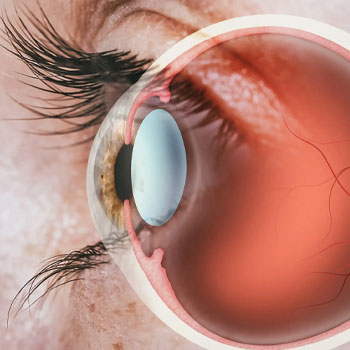Retina and vitreous care is a crucial part of ophthalmology that focuses on diagnosing and managing conditions affecting the retina and vitreous body. The retina is a thin layer of light-sensitive tissue at the back of the eye, essential for vision. The vitreous is a gel-like substance that fills the eye and helps maintain its shape. Any damage or disease affecting these parts can lead to vision impairment or blindness if left untreated
What is Retina & Vitreous Care?
Retina and vitreous care involves specialized medical and surgical treatments to address diseases that affect these structures. The retina plays a key role in converting light into neural signals that the brain interprets as images. The vitreous, a clear gel, ensures the retina stays in place. However, various conditions can lead to severe vision problems, requiring medical attention
Common retinal disorders include retinal detachment, diabetic retinopathy, macular degeneration, and retinal vein occlusion. Vitreous-related issues, such as vitreous hemorrhage and floaters, also require careful management

Common Conditions Affecting Retina and Vitreous
Retinal Detachment
Retinal detachment occurs when the retina separates from its underlying tissue. This condition is an emergency and requires immediate treatment. Symptoms include sudden flashes of light, floaters, and a shadow or curtain-like effect over vision.
Diabetic Retinopathy
This condition develops due to prolonged high blood sugar levels damaging the small blood vessels in the retina. It can lead to vision loss if not controlled through regular monitoring and treatment. Symptoms include blurry vision, dark spots, and difficulty seeing at night
Macular Degeneration
Age-related macular degeneration (AMD) is a leading cause of vision loss in older adults. It affects the macula, the central part of the retina, responsible for sharp vision. Early symptoms include distorted vision and difficulty reading or recognizing faces
Retinal Vein Occlusion
This occurs when veins carrying blood away from the retina become blocked. It leads to swelling, bleeding, and vision loss. Risk factors include high blood pressure, diabetes, and high cholesterol levels
Vitreous Hemorrhage
Vitreous hemorrhage happens when blood leaks into the vitreous gel, causing sudden vision changes, dark spots, or complete vision loss in severe cases. It often results from diabetic retinopathy or retinal tears
Floaters and Flashes
Floaters are small, shadowy shapes that move across the visual field. They are common with aging but can sometimes indicate a serious condition like retinal detachment. Flashes of light often signal tension on the retina, which may require medical evaluation
Retina & Vitreous Care Treatments
Laser Therapy
Laser treatments like photocoagulation and pan-retinal photocoagulation are used to seal leaking blood vessels in diabetic retinopathy and to repair retinal tears, preventing detachment
Vitrectomy
A vitrectomy is a surgical procedure where the vitreous gel is removed to treat conditions like vitreous hemorrhage, retinal detachment, and macular holes. It allows the surgeon to access the retina directly and perform necessary repairs
Intravitreal Injections
Medications such as anti-VEGF (vascular endothelial growth factor) injections are administered directly into the eye to manage macular degeneration, diabetic retinopathy, and retinal vein occlusion. These injections help reduce abnormal blood vessel growth and swelling
Retinal Detachment Surgery
Depending on the severity of retinal detachment, procedures like pneumatic retinopexy, scleral buckle, or vitrectomy are performed to reposition the retina and restore vision
Photodynamic Therapy
Used primarily for macular degeneration, this treatment involves injecting a light-sensitive drug into the bloodstream, which is then activated by laser to destroy abnormal blood vessels
When to Seek Expert Retina & Vitreous Care?
It is essential to seek expert ophthalmologic care if you experience symptoms like sudden vision loss, flashes of light, an increase in floaters, or distorted vision. Delaying treatment can lead to permanent damage and vision impairment. Regular eye exams are crucial for individuals with diabetes, hypertension, or a family history of retinal diseases
Signs that require immediate medical attention include
- Sudden or severe vision changes
- Blurry vision that does not improve
- A dark shadow or curtain effect in the visual field
- Flashes of light in one or both eyes
- Rapid increase in floaters
Medex Hospitals – Best Eye Hospital in Guntur for Retina & Vitreous Care
Medex Hospitals in Guntur is known for offering advanced retina and vitreous care. The hospital specializes in diagnosing and treating various retinal conditions using state-of-the-art technology and modern medical techniques. The team of experienced ophthalmologists provides personalized treatment plans tailored to each patient’s needs
Medex Hospitals is recognized for its excellence in handling complex retinal disorders, ensuring patients receive the best possible care. The facility is equipped with advanced diagnostic tools and treatment options, making it a trusted center for vision care
Patients with conditions like diabetic retinopathy, macular degeneration, and retinal detachment can benefit from specialized care at Medex Hospitals. The hospital emphasizes early diagnosis and prompt treatment to prevent vision loss
Retina and vitreous care play a vital role in preserving vision and preventing blindness. Early detection and timely treatment of retinal conditions can significantly improve outcomes. Understanding the symptoms and seeking expert care when needed can help maintain good eye health. Medex Hospitals in Guntur provides top-quality ophthalmology services, making it a reliable choice for patients experiencing retinal and vitreous disorders
Facing eye problems? Call us today for expert care and clear vision solutions
Please Call @ 8499829999

